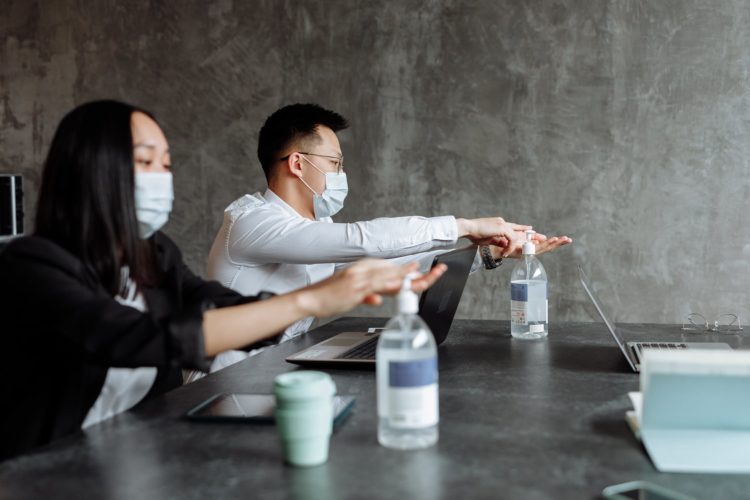According to new research from Manulife people living in Asia have accepted that COVID-19 is here to stay for another year or more and have changed their health, digital, and financial habits to match the new normal, amid continued concerns about their income and overall wellbeing.
Manulife’s third Asia Care Survey noted that 35% think the pandemic will last at least another year, with an additional 14% of them thinking that it will never end.
Across Asia, 44% say their income has dropped because of COVID-19, with 64% having savings to last less than one year if they lose their income. However, while concerns about the economy and longevity of the pandemic persist, the public has learned to adapt and take control of their overall health and finances, especially in the face of Omicron and other variants.

Anil Wadhwani, president and CEO, Manulife Asia, is unsurprised with the data and added that people across Asia are fatigued by more than two years of living through a pandemic, with many unprepared for how long COVID-19 has lasted.
"The findings reveal that there have been profound adjustments in people’s behaviour, lifestyles, and broader physical, mental, and financial habits since last year,” he continued
Rising mental health concerns
Findings of the survey reveal that mental health issues are more prevalent this year than last year with more than two-thirds of respondents experiencing symptoms of mental health concerns in the past six months, including sleeping difficulties, inability to concentrate, excessive worrying, and mood swings.
Depression ranks fourth among health concerns across all markets (25%), with anxiety (18%) and burnout (14%) also included. Apart from COVID-19, the top health concerns worrying people in Asia include cancer (41%), heart disease (33%), stroke (29%) and diabetes (22%).
Thirsty-three per cent believe economic recovery will take a long time. Other concerns include worsening mental health (18%), high medical costs (17%) and lack of insurance to protect themselves and their family (15%).
The need for greater understanding and awareness of some of the issues around COVID-19 was one of the more interesting findings in the survey. It is worth noting that some of the symptoms of mental health problems overlap with those of Long COVID or the long-term effects of coronavirus. Familiarity with Long COVID is surprisingly low at 35% across Asia. However, interest is high, with 94% wanting to know more about it and find insurance solutions to help protect them.
Low savings despite better saving habits
The financial implications of the pandemic continue to be felt across the region, exposing disparities in the savings patterns and long-term wealth planning of people in the region.
While 43% of respondents in Asia say they have saved more since the start of the pandemic, 64% say they have savings that can only support them for a year or less, if they lose their jobs.
The primary reason for this is an overall limit on the amount of money that people can actually save. Forty-four per cent saw a decline in their monthly incomes because of COVID-19. Interestingly, about 18% of people living in Asia say they have started their own businesses on top of their full-time or part-time jobs.

“The growing concerns about physical, mental, and financial health are understandable given the pressures people have been under to protect their health, family, and finances since the start of the pandemic,” said Julie Nestor, chief marketing and experience design officer, Manulife Asia.
She suggested it’s important for the industry to help ease those concerns, for example, with simple, affordable insurance products that can go a long way towards building a foundation for resilience and security.
High appetite for insurance
Interest in buying new and additional insurance remains high, with 71% of respondents saying they plan to purchase an insurance product this year. A variety of products are in demand with the more popular insurance products being life (28%) and health (28%), followed by hospitalisation and critical illness (each at 26%).
In Asia, 66% see retirement planning as important since the pandemic, which is reflected in 19% of respondents being interested in buying retirement products in the next 12 months.
The survey found that the main barriers for people to buy insurance are affordability (39%) and finding products too complicated to understand (37%). Ideally, people are looking for simple insurance products that can be purchased quickly online (64%), particularly among consumers from emerging markets.
Mobile apps to monitor and track health status are popular with 89% saying that they are using, or are open to using health and wellbeing apps. In the region, 40% also say they are exercising more since the start of the pandemic.
Over half (52%) of the respondents in Asia prefer outdoor exercise, with walking (57%), jogging (50%), and cycling (27%) among the three most common physical activities. Interestingly, a majority identified the benefits of regular exercise as a means to boost immunity (67%) and improve mental health (64%).
Wadhani added while people in Asia have adapted pragmatically by staying healthy and getting insured, there is more we can do to proactively help them live better every day with simpler health and retirement solutions, easier access to digital health offerings, like telemedicine, and meaningful rewards to motivate healthier lifestyles."




